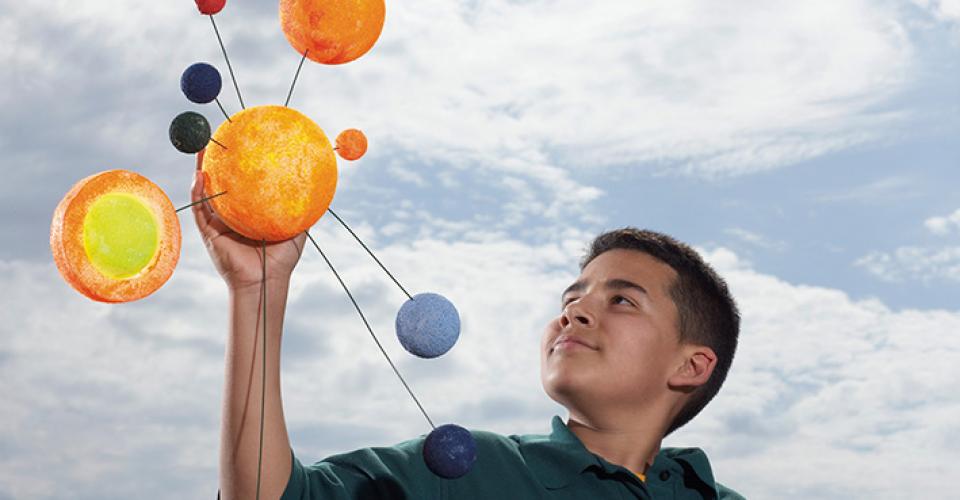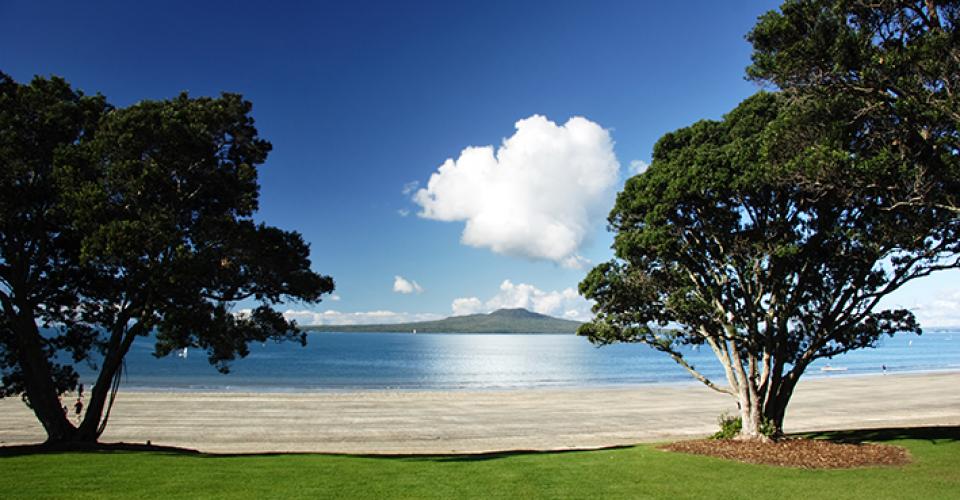Small steps down the path of discovery
20/02/2014DR CHRISTINE JASONI writes about her work as a neuroscientist studying brain development.
 Dr Christine Jasoni is a senior lecturer in the University of Otago’s Anatomy Department. Her work focuses on the development of the brain during pregnancy, and how mothers’ health during the early stages of life can affect the wellbeing of her offspring.
Dr Christine Jasoni is a senior lecturer in the University of Otago’s Anatomy Department. Her work focuses on the development of the brain during pregnancy, and how mothers’ health during the early stages of life can affect the wellbeing of her offspring.
How do you describe what you do?
I tell people that I am interested in understanding how the brain is formed. We can all appreciate that our brains do some pretty amazing things, and that is because of the way they are put together. We all have different things that we're good at – some people are good at maths, and others at painting – and that is partly because their brains are put together slightly differently.
But the environment that we learn in can also make a big difference to what we like and what we're good at. I am interested in understanding how the basic plans for building a brain, which are determined mainly by our genetics, and the environment we develop in before birth and early in our childhood are interconnected and how they interact to create uniqueness and individuality.
The focus of our research group is to understand how a mother's health (and ill health) during pregnancy can affect the later life health and well-being of her offspring. We are particularly interested in understanding the curious observation that mothers who are obese and/or suffer from gestational diabetes have offspring who are at much greater risk of obesity and metabolic syndrome (a complex disorder which includes diabetes, high blood pressure, and cardiovascular risk) as well as autism and learning disabilities.

What led to your particular interest in brain development?
My interest in the development of the brain came about from an intense interest in wanting to understand how things work. As a child, I constantly took things apart to figure out their inner workings. I never seemed to be able to put them back together again, and I usually got in trouble for this, but my curiosity was not daunted. As I got older and thought about more and more complex things, it was always with an eye to figuring out what makes them tick at the finest level.
The brain is by far and away the most complex thing in existence, and it's also what makes us who we are. To me, there was never much doubt that trying to work out how our brains are put together, was the ultimate question for biology, and one that I had to put my efforts toward. We're still a long way from figuring this out. We have made great headway, but there is still so much yet to discover. And this means really exciting times ahead for neuroscience research and the application of this knowledge to improve our own health and wellbeing.
What have been some of your career highlights?
I'm not sure if there are specific events that I can single out. It has really been the path I've navigated that has made my experience fun and exciting. And at least part of this is the thrill of discovery. We don't really have ‘a-ha’ moments in science, despite this terminology being used quite a lot. Rather, we work passionately and diligently toward a goal with the hope of figuring out how something works. The satisfaction of fulfilling the hope of discovery is one big highlight of the work I do. But it is important to recognise that discovery is incremental, and so highlights come from celebrating the small steps that take a scientist incrementally down the path of discovery.
Were you interested in science at school, and what was your academic path after school?
I was always curious and interested in discovery, but I think it would be fair to say that I didn't actually put a name to it. I just liked figuring out how stuff worked and what made it work. We call that pursuit science, and people who do it scientists. But I see these names as just labels for a combination of personality traits that might include, but not be limited to, curiosity, creativity, drive, hope, open-mindedness, passion, and patience. If you have these qualities, then science is for you. But I don't recommend that you rely on yourself, necessarily to figure out whether you have these elements – if you do, that's great. But sometimes we can be quite hard on ourselves and focus on our weaknesses and fears, rather than recognising our strengths. Although I can assess my attributes now, I wasn't so good at it when I was younger. So I give much credit to my high school biology teacher who encouraged me (massively) to pursue science at university.
My path from then on was pretty typical – I double majored in biology and mathematics at university, and then went straight into a PhD programme. It took me a while to figure out what I wanted to devote my research career to, and I even took a diversion and worked in the biotech industry for five-ish years before returning to academic science. The upshot here is that you need to assess yourself, and get assessment from others who care about you. This is not always parents, but it may be. Don't be bashful about trying different things – I started by majoring just in mathematics, and then switched to biology because I took a really cool biology paper in first year. Explore yourself, and figure out what you like and what you're good at. That is where you will ultimately find intellectual and personal satisfaction.
How do you think your job will change over the next five or ten years?
This is a tough question to ask someone like myself, who is what we call a 'basic scientist' or someone who studies basic or fundamental science. This means that I am interested in understanding how stuff works and what happens when things don't work as they should. It is important to recognise that in order to do this kind of study we cannot use human embryos or foetuses, but rather those of an animal model. We use mice because many aspects of their brain development are similar to my own. My research area is brain development, so in my research programme we study how the brain forms before birth (in the embryo and foetus), what causes it to develop improperly, and then what are the consequences of it developing improperly (such mental illness or increased risk for neurodegenerative disease). We then use this information to try at a very fundamental level to reverse the bad stuff, the malformation, so that brains develop as normally as possible and thus reduce the risk for later life disease. Ultimately, we'd like to be able to use this information to reduce mental illness or neurodegeneration in people, but the body of knowledge in this area is still only very small. We need to know much more before we can reach this lofty goal, and this will take a while, maybe five to ten years. Once this body of knowledge grows substantially, through the efforts of many research teams all over the world including my own, then we will be poised to move on to the next step - to use this information to improve the quality of life for kids and adults who might be at increased risk for mental illness or neurodegeneration. At that point, much of my research will be dealing with human subjects rather than animal models. As our research on real-life subjects progresses, there will also be massive improvements in synthetic biology, which allows researchers to model biological systems with computer algorithms. This also will change how I do my job in five to ten years.
One of the most exciting things about thinking about the future, is that we can make a whole raft of exciting predictions, but we don't know which, if any, will actually come to pass.
So there's the element of the unknown not just to the discovery process, but also to the path of discovery. And this is also quite fun and exciting.
***********
You can listen to Christine talking about her work in this video clip: Keeping Mum: does our mother’s health during pregnancy affect our wellbeing?

























Post your comment
Comments
No one has commented on this page yet.
RSS feed for comments on this page | RSS feed for all comments